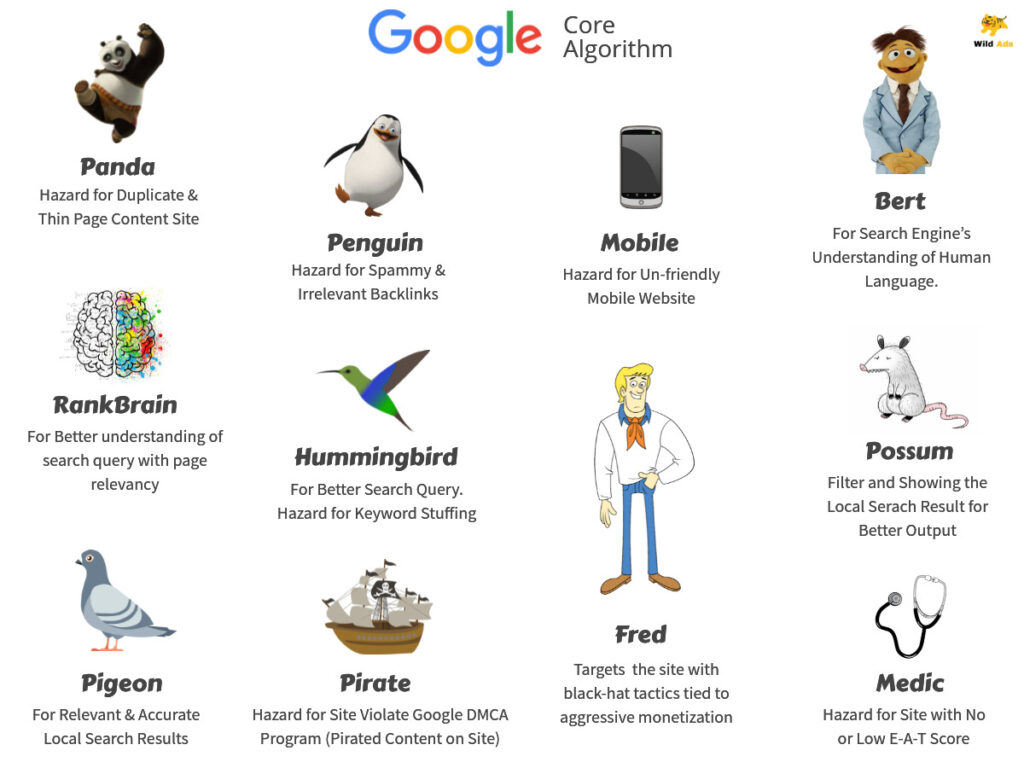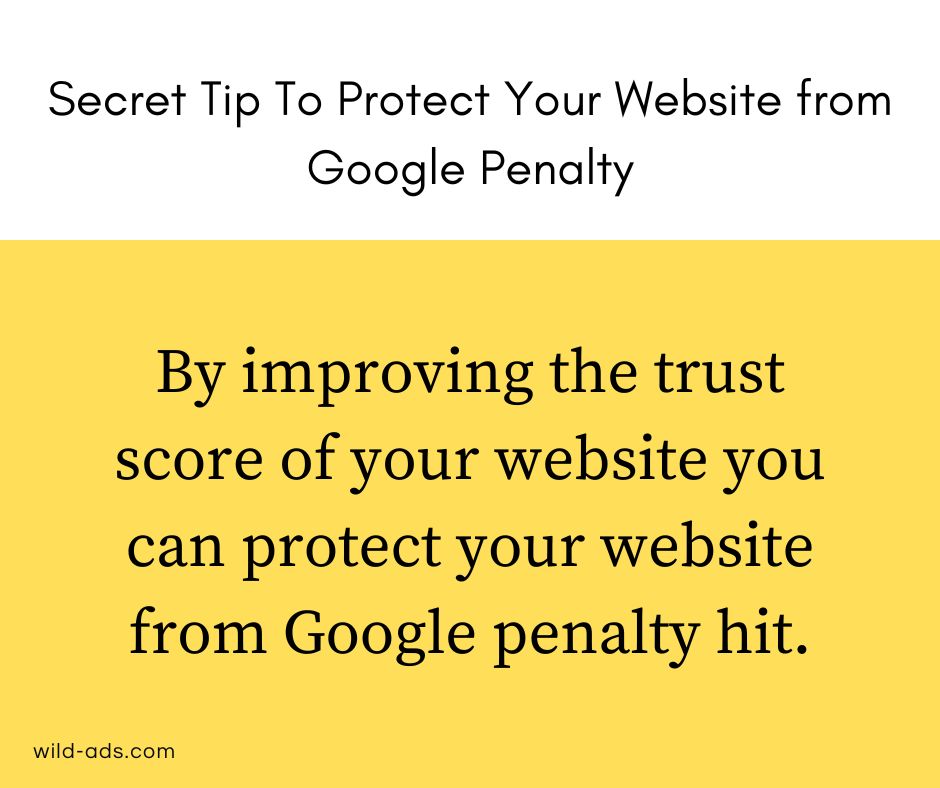
In this post, I going to share some shortcuts to protect your website from Google penalties.
What is Website Penalty in Google?
In the context of Google, a website penalty refers to a negative impact imposed on a website’s search engine rankings and visibility due to violations of Google’s Webmaster Guidelines. These penalties are typically enforced by Google’s algorithms and are intended to discourage and penalize websites that engage in manipulative or spammy practices to artificially boost their search rankings.
There are two main types of penalties that Google can impose on websites:

Algorithmic Penalties: These penalties are automatically applied by Google’s algorithms, such as Google Panda, Google Penguin, and Google’s core algorithm updates. Algorithmic penalties target various aspects of a website, including content quality, keyword stuffing, low-quality backlinks, and other factors that violate Google’s guidelines. When a website is hit by an algorithmic penalty, its rankings drop significantly in the search results.
Note – On Google search your website as following site:domain.com if your web pages are not coming on search results. Then your website is severely hit by Google’s Algorithm.
Manual Penalties: In some cases, Google’s webspam team may manually review a website and apply a penalty if they find severe violations of Google’s guidelines. These manual penalties are often issued when a website engages in activities like spammy link building, cloaking, hidden text, or other deceptive practices. When a manual penalty is applied, the website’s owner will receive a notification in Google Search Console, informing them of the violation and the need for corrective action.
Note – You can find the Manual Penalities on Google search console. There’s a separate tab, where you can find the penalty messages.
To recover from a Google penalty, webmasters need to identify the reason for the penalty, rectify the issues, and then submit a reconsideration request to Google if it was a manual penalty. It’s essential to ensure compliance with Google’s Webmaster Guidelines to maintain good search engine rankings and avoid penalties in the first place.
On top of that many of them think website ranking drop is caused by website algorithm updates. But that is not true. Check out here for Possible Causes of a Rankings Drop.
Secret Tip To Protect Your Website from Google Penalty

By improving the trust score of your website you can protect your website from Google penalty.
What is Trust Score? In the context of websites and search engines, a trust score typically refers to a numerical value or metric used to assess the credibility, reliability, and trustworthiness of a website.
Search engines like Google use complex algorithms to determine the ranking of websites in search results. These algorithms take into account various factors to assess the quality and authority of a website, and one of these factors is often referred to as a “trust score” or “trust factor.”
The trust score is not a publicly disclosed metric, and its specific calculation is a closely guarded secret by search engines. However, it is generally believed to be influenced by factors such as:
- Backlinks: The quality and quantity of inbound links from other reputable and trustworthy websites.
- Domain Age: Older domains are often considered more trustworthy than newer ones.
- Content Quality: The relevance, uniqueness, and accuracy of the content on the website.
- User Experience: Factors such as site speed, mobile-friendliness, and overall user satisfaction.
- Security: The presence of an SSL certificate and a secure website connection (HTTPS).
- Brand Reputation: Positive mentions and reviews of the brand or website on other authoritative sources.
Websites with a higher trust score are more likely to rank well in search engine results, while websites with a low trust score may struggle to gain visibility. It’s important to note that trust score is just one of many factors that search engines consider, and it works in conjunction with other ranking factors to determine a website’s overall search engine ranking.
Note – Make your external backlinks to be clickable. If more users click those links and reach your website leads to improve your trust score in a short duration

